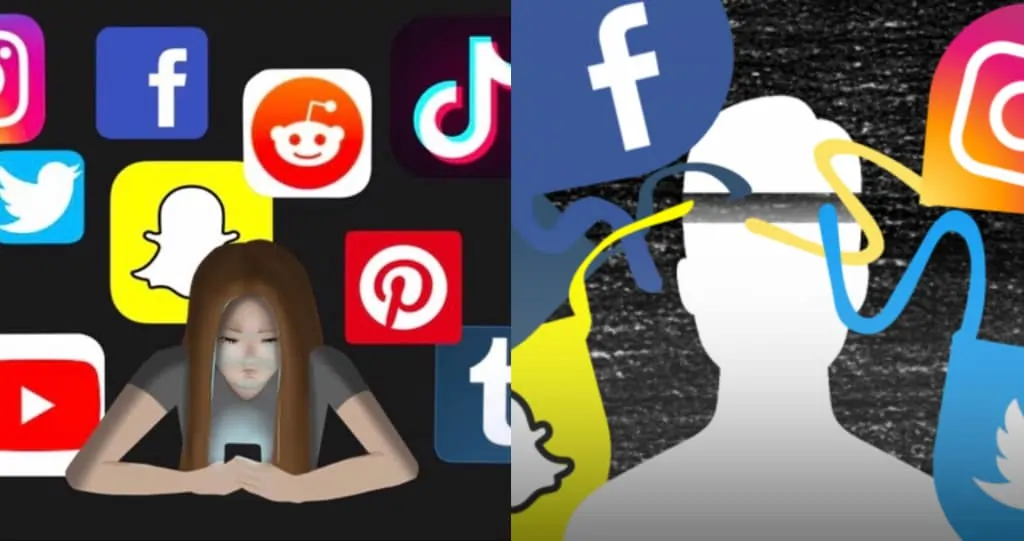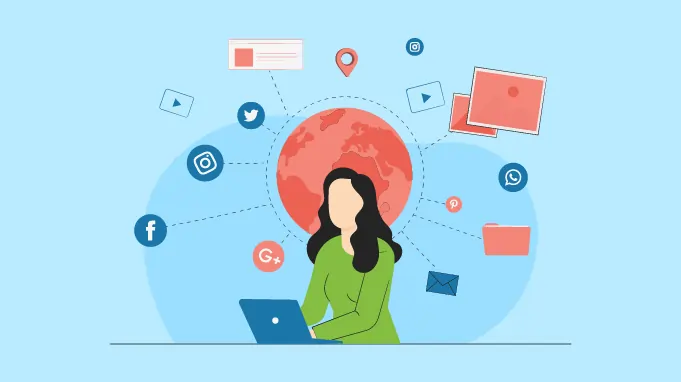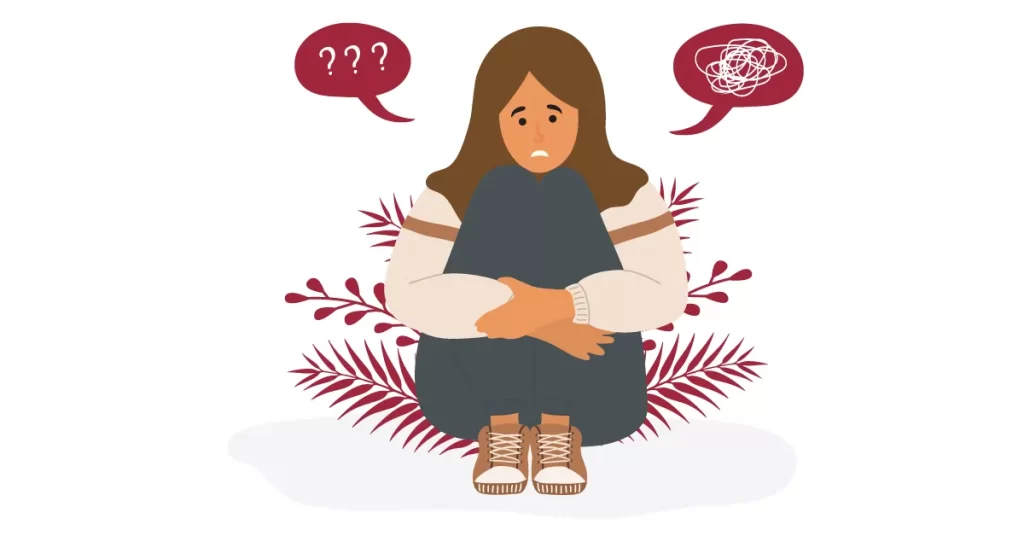Impact of Social Media| Strategies for a Healthier Online Presence

Table of Contents
Key Takeaways
- Awareness is Key: Recognize the impact that social media can have on your mental health. Be mindful of how excessive use and comparison can lead to feelings of inadequacy, loneliness, and anxiety.
- Practice Self-Compassion: Cultivate self-compassion and understanding when engaging with social media. Remember that what you see online is often a curated portrayal, not reflective of reality. Focus on your own journey, strengths, and accomplishments rather than comparing yourself to others.
- Set Boundaries: Establish boundaries around your social media usage to prevent overexposure and mitigate negative effects. Designate specific times for checking social media and utilize tools to track and limit screen time.
- Curate Your Feed: Be intentional about the content you consume on social media. Unfollow accounts that trigger negative emotions or perpetuate unrealistic standards. Surround yourself with positivity and authenticity, curating a feed that aligns with your values and aspirations.
- Seek Support: Don’t hesitate to reach out for support if you’re struggling with the impact of social media on your mental health. Engage in open conversations with friends, family, or mental health professionals, and utilize available resources and communities for guidance and support. Remember, you’re not alone in facing these challenges, and help is available.
Introduction
Definition of mental health
Mental health encompasses our emotional, psychological, and social well-being. It influences how we think, feel, and act, shaping our ability to handle stress, relate to others, and make decisions.
Introduction to social media
Social media platforms like Facebook, Instagram, and Twitter have revolutionized the way we communicate and connect with others. They provide avenues for sharing experiences, staying updated on news, and fostering communities based on shared interests.
Brief overview of the relationship between social media and mental health
While social media offers numerous benefits, its impact on mental health is a topic of increasing concern. The constant exposure to curated content, the pressure to present an idealized version of oneself, and the prevalence of cyberbullying are just a few factors that can influence mental well-being.
In an era where connectivity is at our fingertips, social media has undeniably transformed the way we interact, share, and perceive the world around us.
From reconnecting with old friends to staying updated on current events, platforms like Facebook, Instagram, and Twitter have become integral parts of our daily lives.
However, alongside the benefits of social media come a myriad of challenges, particularly concerning our mental health.
In this article, we’ll delve into the intricate relationship between social media usage and mental well-being, exploring its impact and offering coping strategies for navigating this digital landscape.
Purpose of the paper
This paper aims to explore the multifaceted relationship between social media usage and mental health, shedding light on the various ways in which digital platforms can affect our psychological well-being.
Additionally, it will provide coping strategies to mitigate the negative impacts and promote healthier online habits.
In the fast-paced digital age we live in, where connectivity knows no bounds, social media has become an integral part of our daily lives. From scrolling through Instagram feeds to catching up on Twitter trends, these platforms offer us a virtual window into the world.
However, amidst the allure of constant connection and instant gratification, there lies a shadowy side that often goes unnoticed – the impact of social media on mental health.
In this article, we embark on a journey to explore the intricate relationship between social media usage and mental well-being. From the highs of validation to the lows of comparison, we delve into the nuances of how these platforms shape our perceptions, emotions, and ultimately, our mental health.
Through understanding and awareness, we aim to navigate the complexities of the digital landscape with resilience and mindfulness, prioritizing our well-being in an era dominated by likes, shares, and hashtags.
Impact of Social Media on Mental Health

In today’s interconnected world, social media has become an integral part of our daily lives, shaping how we communicate, interact, and perceive the world around us.
While it offers numerous benefits, from staying connected with loved ones to accessing information, there’s growing recognition of its impact on mental well-being.
Here, we delve into 10 key insights on the impact of social media on mental health and offer effective coping strategies to navigate the digital landscape.
Comparison Culture:
One of the most significant impacts of social media is the rise of comparison culture. Platforms often showcase curated versions of people’s lives, leading to feelings of inadequacy and low self-esteem among users who compare their lives to others’ highlight reels.
Fear of Missing Out (FOMO):
Social media’s constant stream of updates can fuel FOMO, a pervasive feeling of anxiety that arises from the fear of missing out on rewarding experiences others are having. This fear can lead to increased stress and dissatisfaction with one’s own life.
In the age of social media, the fear of missing out (FOMO) has emerged as a prevalent psychological phenomenon.
FOMO occurs when individuals feel anxious or distressed at the thought of missing out on rewarding experiences or social events perceived as superior to their own.
The constant stream of curated content showcasing exciting adventures, lavish lifestyles, and enviable experiences can exacerbate feelings of inadequacy and fuel a relentless pursuit of comparison.
It’s essential to recognize that FOMO is a natural response to the curated narratives presented on social media and to prioritize self-care over the pressure to constantly stay connected and engaged.
Cyberbullying:
The anonymity and distance afforded by social media platforms can embolden individuals to engage in cyberbullying, causing significant emotional distress and psychological harm to victims.
While social media offers a platform for communication and connection, it also harbors darker corners where cyberbullying thrives.
Cyberbullying, characterized by harassment, intimidation, or spreading of harmful rumors online, can have devastating effects on mental well-being. The anonymity afforded by the digital realm emboldens perpetrators to unleash cruelty without consequences, leaving victims feeling powerless and isolated.
Whether it’s hurtful comments, malicious messages, or targeted attacks, the psychological toll of cyberbullying can be profound. It’s imperative to cultivate a supportive online community and take a stand against cyberbullying by reporting instances of abuse and supporting those affected.
Sleep Disturbances:
Excessive use of social media, particularly before bedtime, has been linked to sleep disturbances such as insomnia and poor sleep quality. The blue light emitted by screens can disrupt the body’s natural sleep-wake cycle, leading to sleep deprivation and daytime fatigue.
Negative Body Image:
Pervasive beauty standards perpetuated on social media can contribute to negative body image issues, particularly among young users. Constant exposure to idealized images can distort perceptions of beauty and lead to unhealthy comparison and self-criticism.
Studies have highlighted a concerning correlation between heavy social media use and negative self-esteem, particularly among adolescents and young adults.
The constant exposure to idealized images of beauty and success can distort perceptions of self-worth, leading to feelings of inadequacy and dissatisfaction with one’s own body.
The prevalence of filters, photo-editing tools, and influencers promoting unrealistic beauty standards exacerbates these issues, contributing to a culture of comparison and self-doubt.
It’s crucial to remind ourselves that beauty comes in all shapes, sizes, and imperfections. True self-worth transcends external appearances and lies in embracing our unique qualities and accomplishments.
Social Isolation:
Paradoxically, despite being designed to connect people, excessive use of social media can contribute to feelings of social isolation and loneliness. Focusing on virtual interactions may detract from real-world connections and meaningful relationships.
Information Overload:
The constant barrage of information on social media can be overwhelming, leading to cognitive overload and mental fatigue. Users may feel pressured to stay updated and informed at all times, leading to heightened stress levels.
Validation Seeking Behavior:
The quest for likes, comments, and shares on social media can foster validation-seeking behavior, where individuals’ self-worth becomes tied to external feedback. This reliance on external validation can undermine genuine self-esteem and confidence.
Distorted Reality:
Social media often presents a distorted reality, where individuals selectively share positive aspects of their lives while concealing struggles and challenges. This curated version of reality can skew perceptions and foster unrealistic expectations.
Social media platforms serve as virtual arenas where individuals can showcase their lives, accomplishments, and aspirations. While this digital stage fosters connection and community, it also cultivates an environment ripe for comparison and validation-seeking.
Scrolling through carefully curated feeds filled with picturesque vacations, flawless selfies, and seemingly perfect lives can evoke feelings of inadequacy, loneliness, and anxiety.
It’s essential to recognize that what we see on social media is often a curated snapshot, not the full picture. Comparing our behind-the-scenes reality to others’ highlight reels can distort our perceptions and undermine our self-esteem.
Addiction:
Like any other addictive behavior, excessive use of social media can lead to addiction, characterized by compulsive usage and withdrawal symptoms when access is limited. This addiction can interfere with daily functioning and exacerbate mental health issues.
In conclusion, while social media offers unparalleled opportunities for connection and expression, its impact on mental health cannot be overlooked.
By understanding the various ways in which social media can influence our psychological well-being and implementing effective coping strategies, we can navigate the digital landscape with greater resilience and mindfulness.
In the age of digital connectivity, social media has become an integral part of our daily lives, influencing how we communicate, share experiences, and perceive ourselves and others. While social media platforms offer numerous benefits, they also pose significant challenges to our mental well-being.
From incessant comparison to curated portrayals of reality, the impact of social media on mental health cannot be overlooked. However, amidst the digital noise, there are strategies one can employ to mitigate its negative effects and foster a healthier relationship with social media.
Coping Strategies

Limit Screen Time:
Set boundaries around social media usage, allocating specific times of the day for engagement and disconnecting during restorative activities or before bedtime.
Set boundaries around your social media usage to prevent overexposure and mitigate potential negative impacts on mental health. Designate specific times of the day for checking social media and resist the urge to mindlessly scroll.
Utilize apps or features that track screen time and provide reminders when you’ve reached your limit, allowing for intentional engagement with digital platforms.
Curate Your Feed:
Unfollow accounts that promote unrealistic standards or trigger negative emotions, and curate a feed that fosters positivity and inspiration.
Be mindful of the content you consume on social media and its potential effects on your mental well-being. Unfollow accounts that trigger negative emotions or perpetuate unrealistic standards of beauty and success.
Instead, curate your feed to include content that uplifts, inspires, and promotes authenticity. Surround yourself with positivity and diverse perspectives that align with your values and aspirations.
Practice Mindfulness:
Cultivate awareness of your thoughts and feelings while engaging with social media, and practice mindfulness techniques to stay grounded and present.
Build Real-World Connections:
Prioritize face-to-face interactions and nurture meaningful relationships offline, fostering a sense of belonging and support outside the digital realm.
Seek Professional Help:
If social media use significantly impacts your mental health, consider seeking support from a mental health professional who can provide guidance and therapeutic interventions.
Focus on Self-Care:
Invest time in activities that promote self-care and well-being, such as exercise, hobbies, and spending time in nature, to counterbalance the effects of social media.
Practice Gratitude:
Cultivate gratitude for the blessings in your life and focus on appreciating what you have rather than comparing yourself to others’ highlight reels.
Set Realistic Expectations:
Recognize that social media portrays a curated version of reality and set realistic expectations for yourself, understanding that everyone experiences struggles and challenges.
Take Breaks:
Schedule regular breaks from social media to recharge and recalibrate, allowing yourself to disconnect and engage in activities that bring joy and fulfillment.
Stay Informed:
Educate yourself about the impact of social media on mental health and stay informed about strategies and resources available to maintain a healthy balance in the digital age.
If you find yourself struggling with the negative effects of social media on your mental health, don’t hesitate to seek support from friends, family, or mental health professionals.
Engage in open and honest conversations about your feelings and experiences, fostering connection and understanding. Remember that you’re not alone in facing these challenges, and there are resources and communities available to provide guidance and support.
Conclusion
In conclusion, the impact of social media on mental health is multifaceted, encompassing both benefits and challenges.
While social media platforms offer unprecedented connectivity and opportunities for self-expression, they also present risks to our mental well-being, from comparison and envy to information overload and digital addiction.
However, by implementing proactive coping strategies, individuals can navigate the digital landscape with greater resilience and mindfulness.
In conclusion, the impact of social media on mental health is a complex and multifaceted issue that requires careful consideration and proactive coping strategies.
While social media offers unprecedented opportunities for connection, expression, and community, it also presents challenges that can detrimentally affect our mental well-being.
By understanding the pitfalls of social media, such as comparison, cyberbullying, and FOMO, and implementing healthy coping strategies, we can navigate the digital landscape with resilience and mindfulness.
Let us prioritize self-care, authenticity, and meaningful connections in our online interactions, fostering a digital environment that nurtures rather than undermines our mental health.
Summary of the impact of social media on mental health
Social media can influence our mental health in profound ways, shaping our self-perception, emotional well-being, and social interactions.
While excessive social media use has been linked to increased feelings of anxiety, depression, and loneliness, mindful engagement and proactive coping strategies can mitigate these negative effects and promote a healthier relationship with technology.
Recap of coping strategies discussed
From limiting screen time and curating our feed to practicing mindfulness and self-compassion, there are numerous strategies we can employ to safeguard our mental well-being in the digital age.
By setting boundaries, seeking support, and prioritizing offline activities and self-care, we can cultivate resilience and balance amidst the digital noise.
Call to action for individuals to prioritize their mental well-being in the digital age: As we navigate the ever-evolving landscape of social
In conclusion, while social media offers unparalleled opportunities for connection and communication, it’s essential to be mindful of its potential impact on mental well-being.
By understanding the challenges posed by social media and implementing effective coping strategies, we can navigate the digital landscape with greater resilience and maintain our mental health in the age of technology.
You May Also Like
Ciara Annie Duke is an American former professional poker player and author in cognitive-behavioral decision science and decision education. She is not just a brilliant business consultant and book author, but also a professional poker player and teacher. Annie is an author, speaker, and consultant in the decision-making space. Annie loves to dive deep into decision making under uncertainty. Her latest obsession is on the topic of quitting. In particular, she is on a mission to rehabilitate the term and get people to be proud of walking away from things.
Duke has created a true masterpiece that not only reveals the secrets of successful betting, but also teaches how to make decisions in the face of uncertainty. You’d be surprised, but it was she who led Ben Affleck to win a major tournament. Personal accomplishments include owning a WSOP bracelet and winning $4 million in prize money. This girl’s book is sure to change the way you think.
In addition to her writing, she offers a holistic approach that should be viewed in the big picture rather than individual stories. The book is a tremendous success among users and receives the highest feedback. By the way, The New York Times described her book as an example of a modern investment scheme. The book does not focus on specific solutions to certain situations, but teaches how to find solutions and analyze possible outcomes.